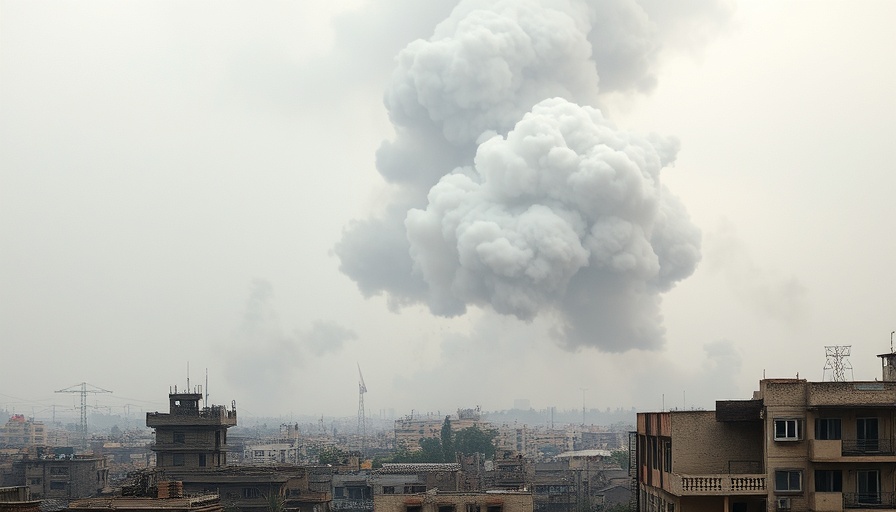
Israel's New Offensive: What It Means for the Region
As tensions escalate in the Middle East, Israeli Prime Minister Benjamin Netanyahu has announced plans for an expanded offensive against Hamas, with potential implications for the entire Gaza Strip. Recent approvals by Israel's security cabinet suggest a shift towards a more sustained military presence, poised to reshape the dynamics of the region significantly.
The Strategic Shift: Gaza Under Siege
Netanyahu has indicated that this operation will be intense and gradual, with a focus on controlling key areas of Gaza. With U.S. President Donald Trump expected to visit the region shortly, the timing of this offensive raises questions about international response and the prospect for a ceasefire with Hamas. The plan reportedly prioritizes the safety of Palestinians—an ironic twist given the growing number of civilian casualties reported in the ongoing conflict.
Public Sentiment: A Tipping Point for Israel
There's mounting evidence that public support within Israel for continued military action is waning. As casualties rise and the conflict extends into what appears to be a protracted engagement, many Israelis are beginning to question the efficacy of such operations. This situation is further complicated by international outcry over humanitarian concerns, demanding a delicate balance between national security and restoring peace.
Comparative Context: Past Military Engagements
This latest move echoes past military campaigns in the region, notably during Operation Protective Edge in 2014, which lasted several weeks and resulted in significant casualties on both sides. However, with the evolving geopolitical landscape and rapid changes in public sentiment, the Netanyahu administration faces challenges unlike those encountered in previous confrontations.
Potential Future Outcomes: The Path Ahead
The focus on intensifying military efforts raises critical questions about future negotiations and potential paths to peace. Notably, if Israel succeeds in consolidating control over Gaza, it may face further isolation on the international stage, especially among allies advocating for a two-state solution.
Turning the Tide through Diplomatic Efforts
With military actions fraught with risk, many experts argue that diplomatic channels must be reinvigorated. The international community, particularly the U.S., has a crucial role in facilitating dialogue that could lead to de-escalation. However, whether Israeli leadership is willing to compromise for peace remains uncertain as hostilities intensify.
Global Reactions: What the World is Watching
Global leaders are closely monitoring Israel's actions, as these developments hold significant implications for international stability. The prospect of increased military action sends ripples of concern through international markets, influencing investment strategies as socio-political factors become intertwined with economic performance. For investors, understanding the geopolitical landscape is paramount; as tensions affect markets, decisions regarding asset allocation and investment strategies must take these factors into account.
The Takeaway for Investors: Navigating Uncertain Waters
As investors in emerging markets ponder their next moves, it’s crucial to recognize the correlation between geopolitical events and market behavior. With tensions in Gaza heating up, understanding risk management strategies and evaluating investment opportunities in sectors resilient to geopolitical shocks can enhance portfolio performance. Those engaged in international investing must stay alert, as regional conflicts can significantly impact market volatility.
 Add Row
Add Row  Add
Add 



Write A Comment